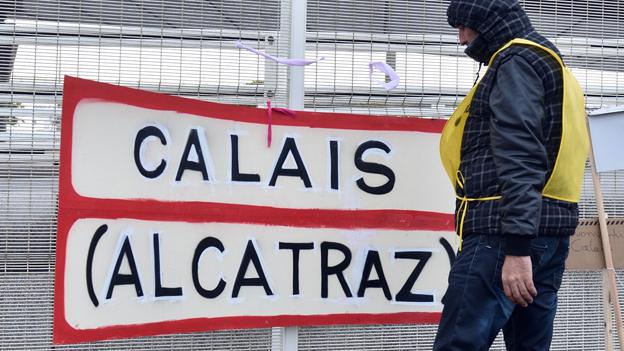Calais migrants seek to exploit port strike
- Published
Footage shows migrants attempting to board lorries near Calais
A strike forced the suspension of services through the Channel Tunnel between the UK and France on Tuesday, as hundreds of migrants tried to board UK-bound lorries amid the chaos.
Eurotunnel, which runs the crossing, says protesters accessed the tracks.
Ferries and Eurotunnel train services carrying passenger vehicles later resumed, but Eurostar trains are not due to run again until Wednesday.
Migrants have been trying to board lorries caught in slow-moving traffic.
About 3,000 migrants are estimated to be living rough around Calais, waiting for a chance to cross the channel.
Lorry drivers have been advised to make sure all their doors are padlocked, to stick with other drivers and not to stop within about 60 miles (100km) of the port.
Workers from the MyFerryLink company had blockaded the port of Calais in a protest over job cuts earlier on Tuesday.
The strike stopped ferry traffic, forcing drivers to try to use the Eurotunnel service instead and causing long queues on the roads into Calais.
Later on Tuesday, the tunnel itself was shut after striking workers gained access to the tracks and caused a fire, Eurotunnel said.
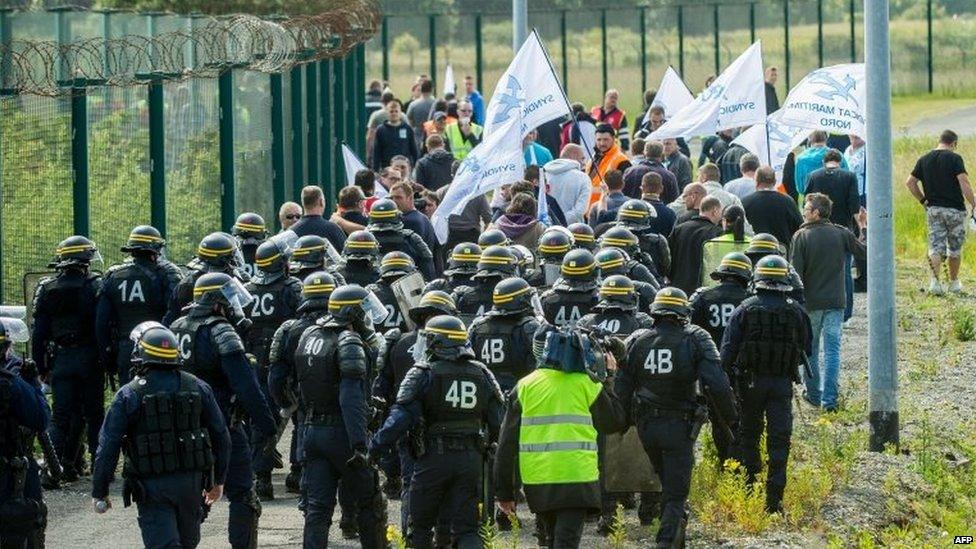
French riot police moved in to try to clear the workers who had gained access to the Channel Tunnel tracks
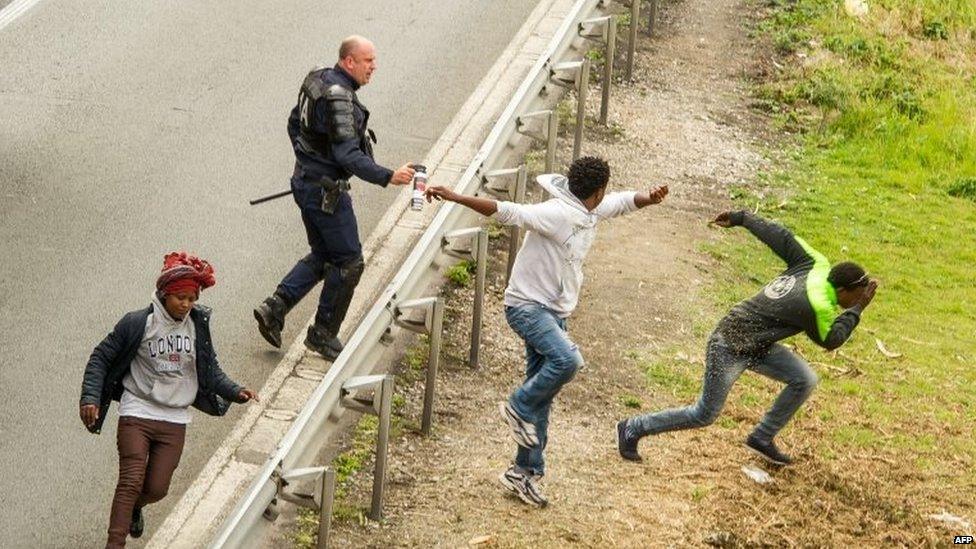
French police have also been using tear gas to try to stop migrants reaching the tunnel
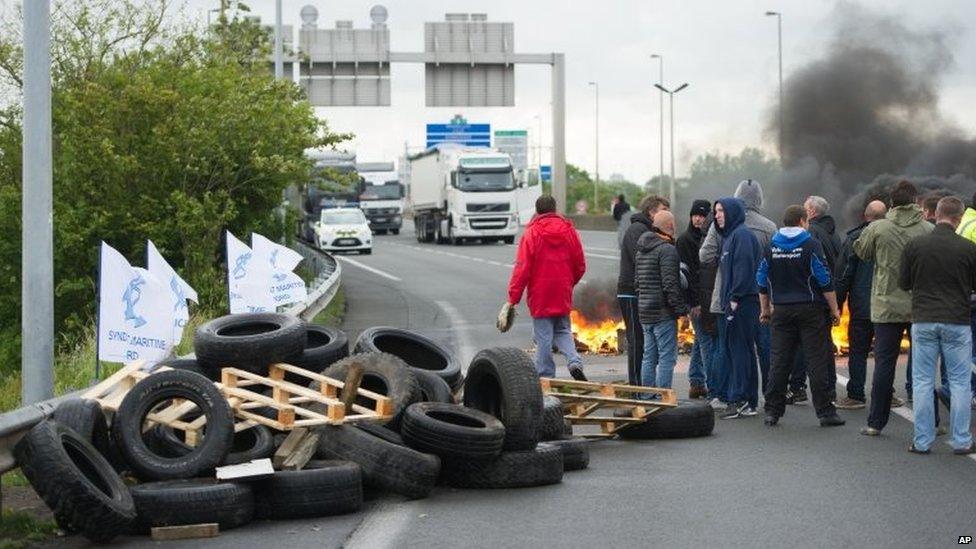
Striking workers had been blocking roads with burning tyres
The strike ended on Tuesday evening and Eurotunnel says its passenger services resumed from 17:50 UK time (16:50 GMT) with two departures per hour, but that they were running with delays in both directions.
'Miles of traffic'
Eurotunnel said the number of migrants in the Calais area was the "highest ever".
Helicopter footage showed large groups gathered by the side of the road, some chasing and boarding a moving lorry from behind.
Eurostar passengers describe their frustration at the suspension of train services
Other migrants were seen talking openly with drivers, while one group was chased away from a lorry by a driver who saw them attempting to break in.
One man ran down the middle of the motorway to close the door behind others who had jumped aboard.
James Kleinfeld, an eyewitness, told the BBC he had seen dozens of migrants on the side of the road.
"We counted around 50 people that we saw hanging around the junction after the exit from the Channel Tunnel train station," he said.
The number of stowaways has surged, as Lucy Williamson reports
According to the UK Home Office, about 19,000 attempts to cross the Channel have been prevented in 2015, more than double the number during the same period last year.
The deputy mayor of Calais, Philippe Mignonet, told the BBC that the UK government had to take more responsibility for the situation and that local authorities had effectively been left in the position of policing the UK's border.
The UK Home Office said in a statement that it was working "with its French counterparts to strengthen the security of the border" and "providing funding to bolster the security and infrastructure of ports in Northern France and Belgium".
- Published23 June 2015
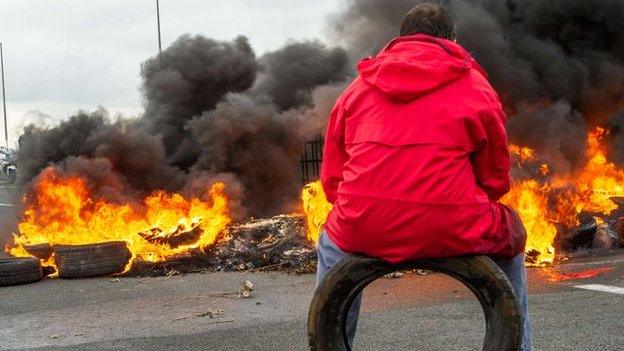
- Published4 June 2015

- Published13 May 2015
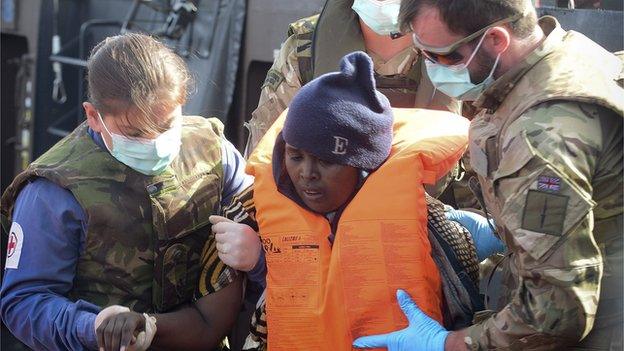
- Published31 January 2015
